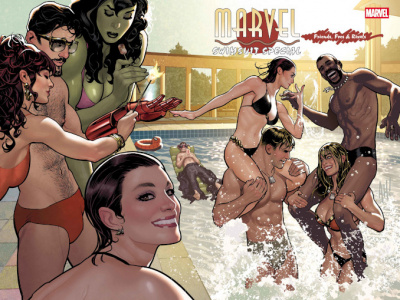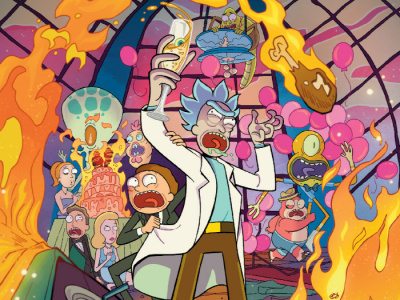Like the 14 Major League baseball teams taking advantage of the economic downturn to cut payroll, Hollywood studios, in spite of a strong start to the year at the box office, are using the recession as an excuse to clamp down on star salaries. Although Marvel Studios is a relative newcomer to the Hollywood scene, it is becoming something of a trendsetter in holding down talent costs. First the studio dropped Terrence Howard from Iron Man 2 and quickly replaced him with Don Cheadle. As Kim Masters put it on The Daily Beast, “If an actor balks at a deal, the studios say they will move to another choice immediately.”
As prime examples of this new austerity trend Masters chose Scarlett Johansson and Mickey Rourke, both of whom accepted moderate paydays (in the $400,000 range) to appear in Iron Man 2. With Rourke’s Oscar nomination for The Wrestler and Scarjo’s increasingly popular profile, Masters suggests that a few years ago the actors might have received a seven-figure salary for appearing in key roles in a franchise blockbuster like Iron Man 2. But as agent explained to Masters: “On certain movies, they feel like whoever they put in a part is fine. Once they lock down Robert Downey, Jr., on Iron Man 2, everything else is fine. I don’t think they give a sh*t if it’s Mickey Rourke or Scarlett Johansson.”
Marvel Studios’ COO Tim Connors gave the sugarcoated version of the policy to Masters: “We don't like to be portrayed as being disrespectful to talent, notwithstanding the fact that we are very budget-conscious and can't always meet an actor's initial asking price. We say, `We wouldn't normally ask an actor at this level to do this but we'd be thrilled to have them'.”
One of the problems with successful film franchises is that star salaries inevitably go up with each subsequent film even though sequels (particularly the third and fourth film in a series) often don’t earn as much as originals. So it is easy to understand Marvel Studios’ desire to keep a lid on salaries when actors debuts in a film franchise. Of course, it is something of balancing act since a good deal of the success of the current wave of superhero films is due to the studios’ ability to attract top flight talent both in front of and behind the camera.








